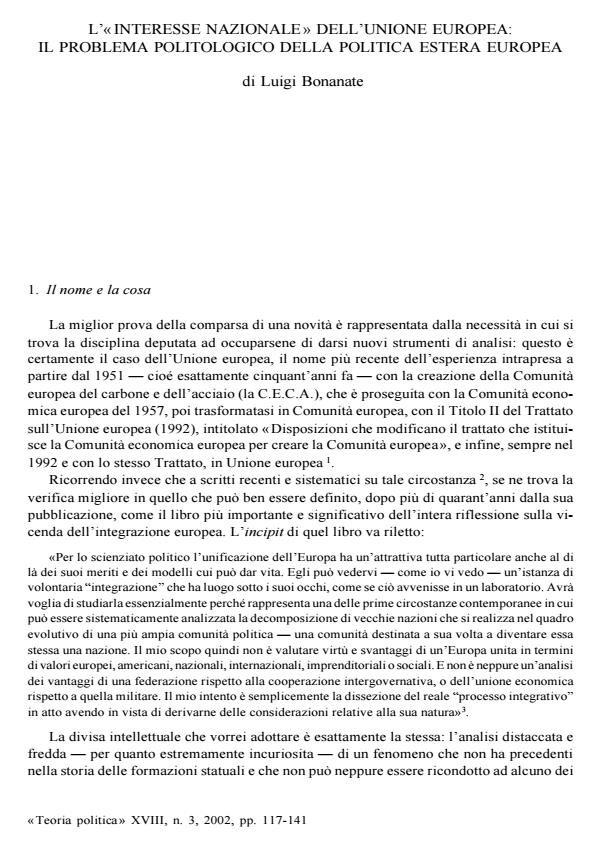L'interesse nazionale dell'Unione Europea: il problema politologico della politica estera europea
Titolo Rivista TEORIA POLITICA
Autori/Curatori Luigi Bonanate
Anno di pubblicazione 2002 Fascicolo 2002/3
Lingua Italiano Numero pagine 25 P. Dimensione file 88 KB
DOI
Il DOI è il codice a barre della proprietà intellettuale: per saperne di più
clicca qui
Qui sotto puoi vedere in anteprima la prima pagina di questo articolo.
Se questo articolo ti interessa, lo puoi acquistare (e scaricare in formato pdf) seguendo le facili indicazioni per acquistare il download credit. Acquista Download Credits per scaricare questo Articolo in formato PDF

FrancoAngeli è membro della Publishers International Linking Association, Inc (PILA), associazione indipendente e non profit per facilitare (attraverso i servizi tecnologici implementati da CrossRef.org) l’accesso degli studiosi ai contenuti digitali nelle pubblicazioni professionali e scientifiche.
States and EU are not respectively prevailing on each other nor are separate: sovereign states "pool" their sovereignty in order to increase their joint capability to act as a single subject. They do not aim to keep separate the competences, which derive from the territorial nature of their power, but wish to pool them as well. Is it possible that at the end of this journey a new state will result? In this essay the author holds that this entity - neither state or super-state nor federation or confederation - is a thoroughly novel construction with respect to the other ones we know, as it started growing half a century ago: a reason why tools we made up through the past few centuries may not be suitable to a much more recent case. Foreign policy, security and borders do not have, for the EU, the same meaning they used to have for modern states.The object is different, different are its traits, as a consequence analytical tools have to be changed as well.
Luigi Bonanate, L'interesse nazionale dell'Unione Europea: il problema politologico della politica estera europea in "TEORIA POLITICA" 3/2002, pp , DOI: